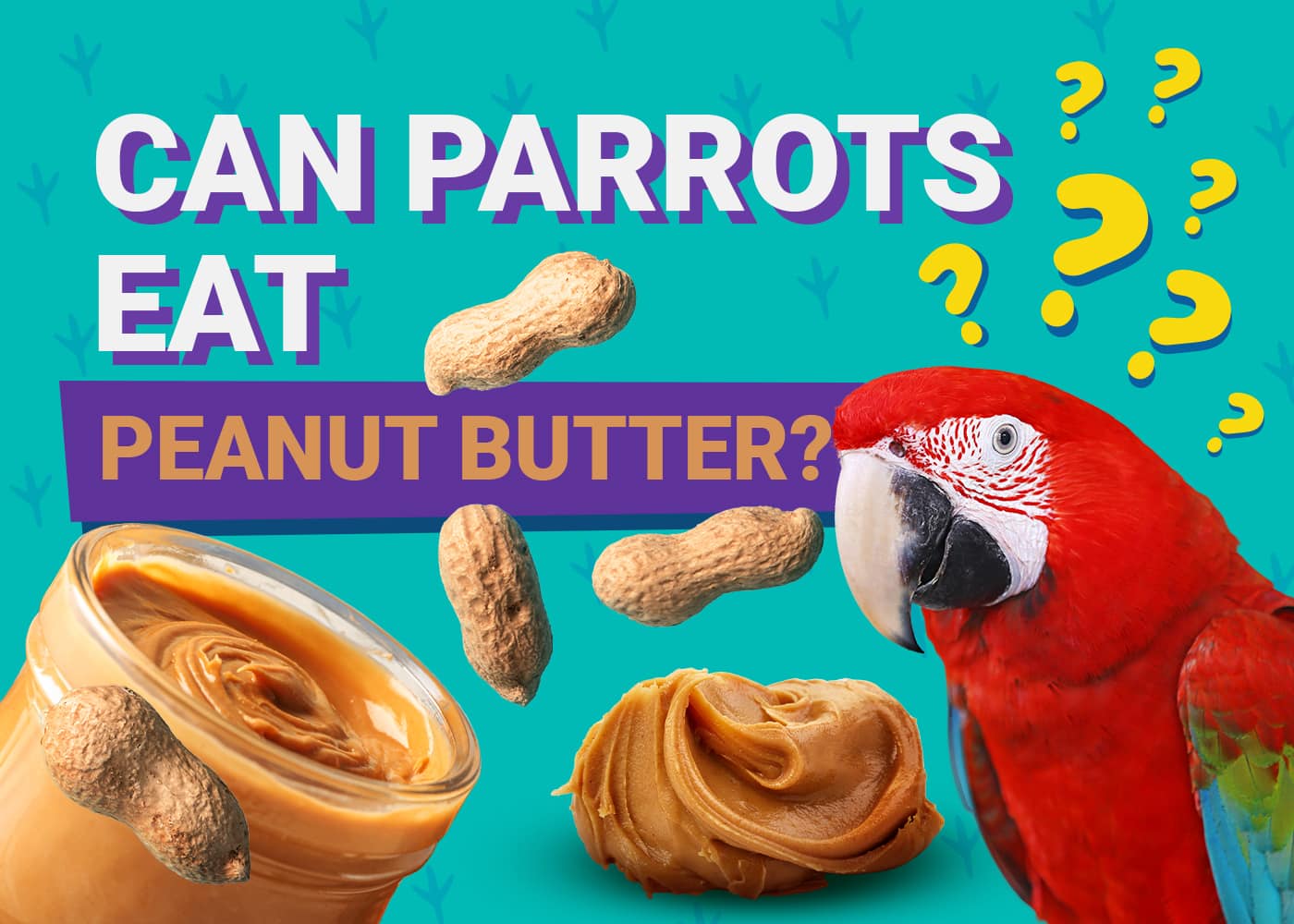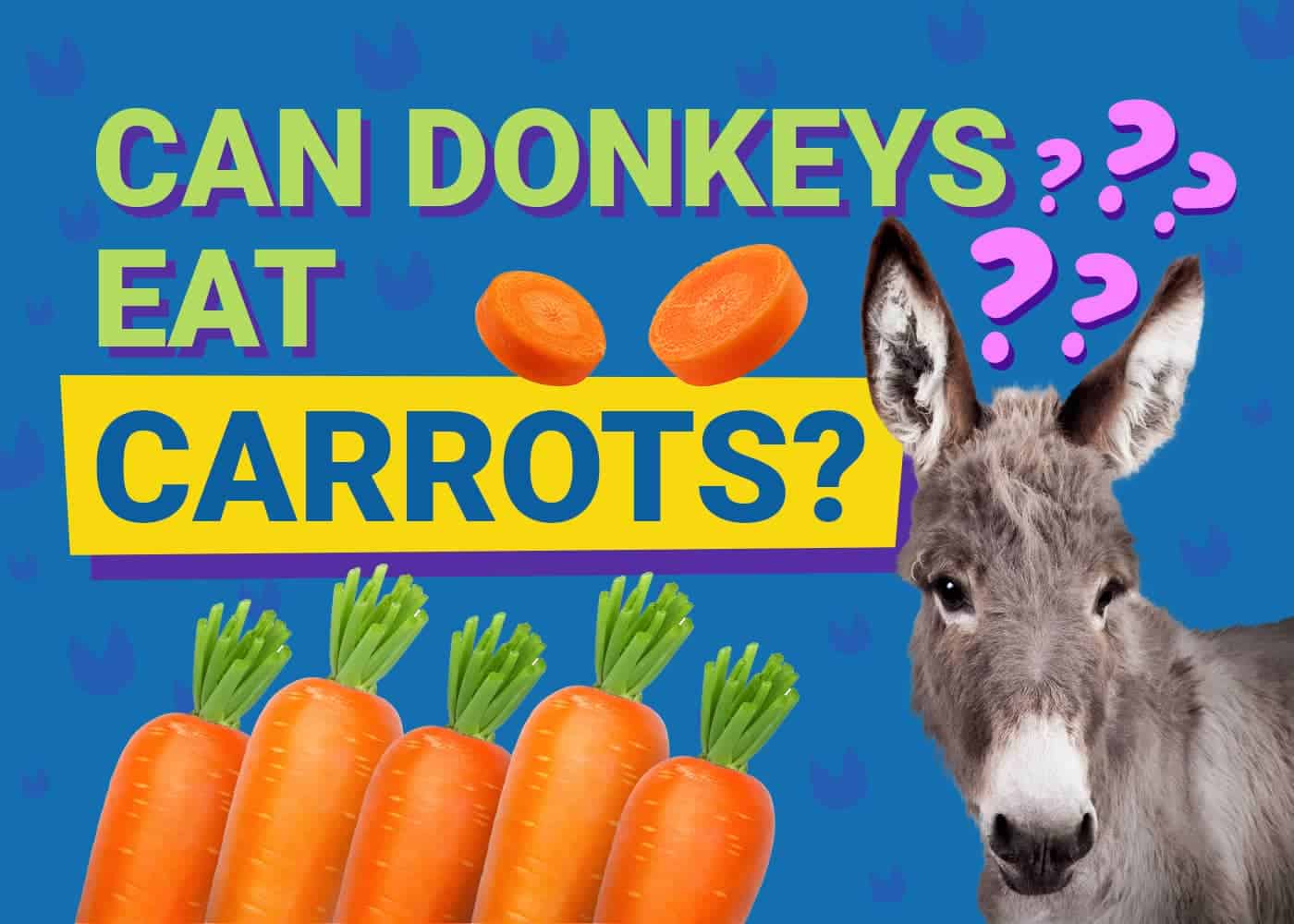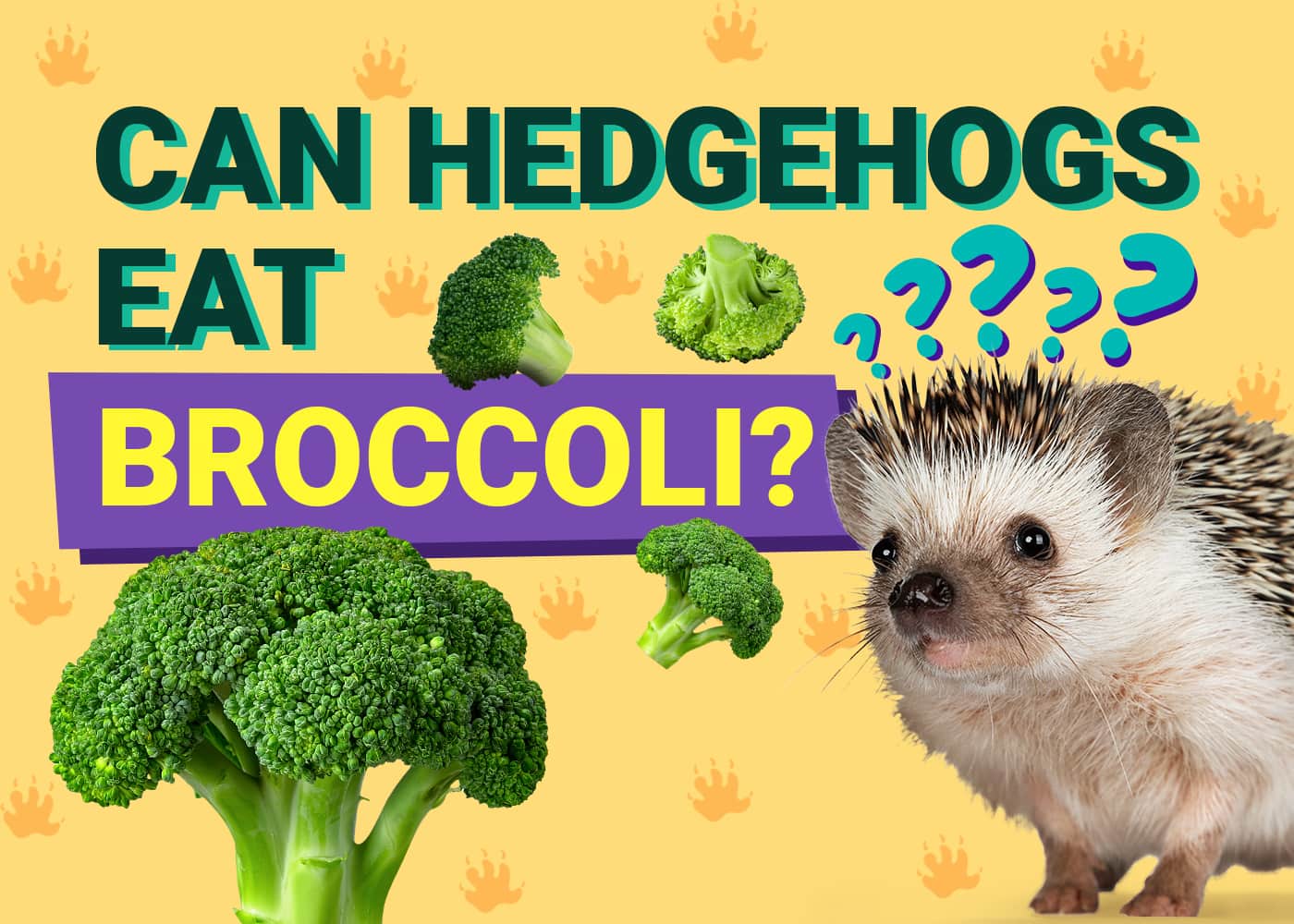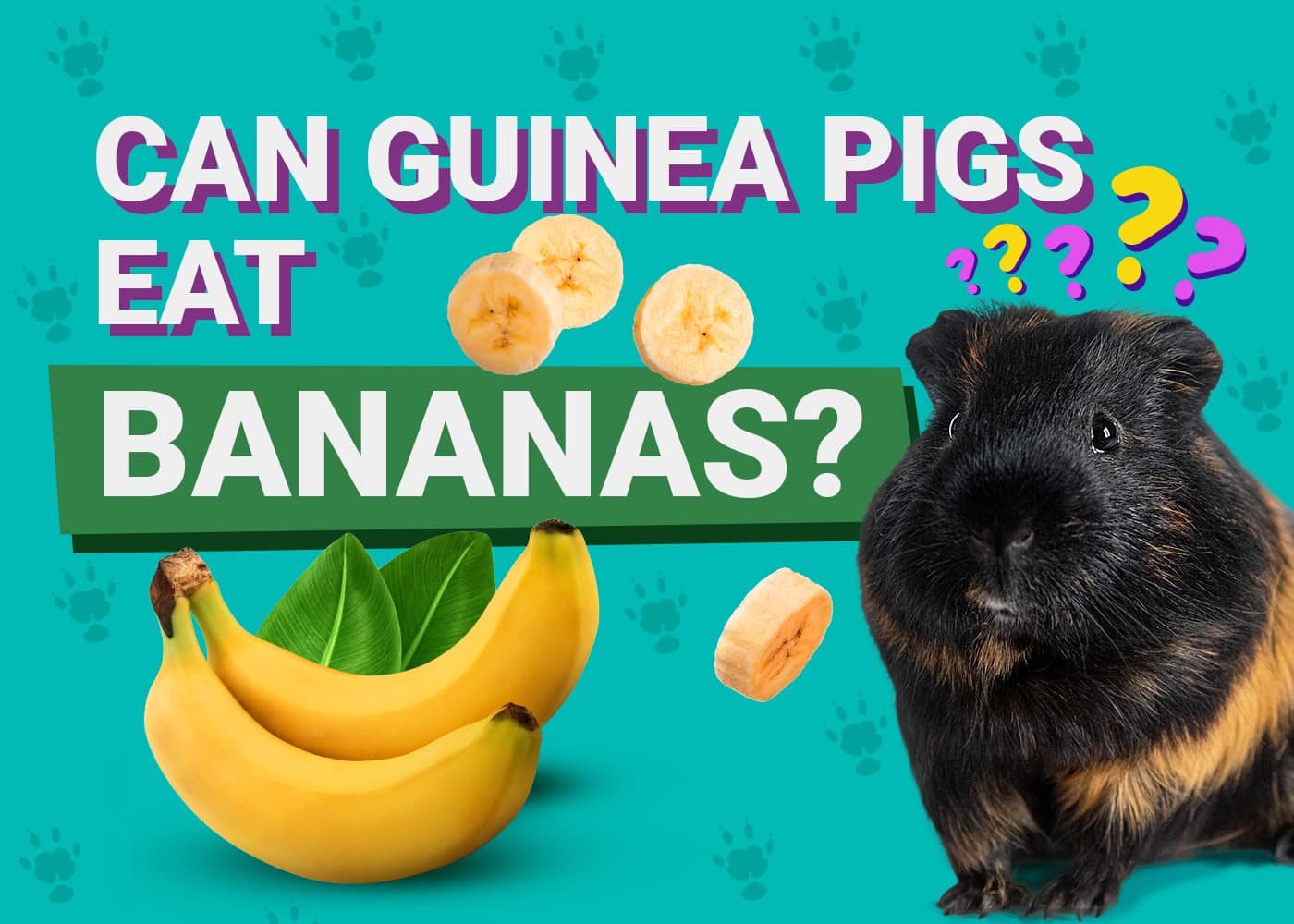VET APPROVED

The information is current and up-to-date in accordance with the latest veterinarian research.
Learn more »With parrots becoming more popular as pets, it’s natural to wonder what your parrot can eat. A common question asked about parrots is whether they can eat peanut butter. You want your parrot to thrive, but will a food like peanut butter be considered a part of a well-rounded healthy diet, or will it make your pet sick? The short answer is that, yes, your parrot can eat pure, emulsifier-free peanut butter, but they’re still likely better off without it.
Read on to learn about peanuts, peanut butter, and other foods that may be part of a parrot’s diet.

Can Parrots Eat Peanut Butter?
There are a few things to consider before feeding peanut butter to your parrot. Aflatoxin is a fungus often found on peanut shells and is harmful to parrots. It can sometimes be found in commercial-grade peanut butter, but it is less likely because of the amount of processing the peanuts go through.
Most commercial preparations of peanut butter also include molasses, salt, oil, and sugar, which are not great for your parrot. As such, you should only ever consider offering your parrot pure peanut butter, made of nothing but peanuts. Such preparations can be found in most organic stores and are very easy to spot; the oil of the peanuts separates from the butter. This form of peanut butter can be “reconstituted” by thoroughly mixing the oil back with the butter base.
If you were to ever see a jar of pure peanut butter, you’d immediately appreciate why it isn’t recommended for parrots, despite being technically non-toxic. All that oil on top is fat! Fats, while necessary in moderate amounts, are extremely calorie-dense (as the name suggests). A pet parrot gets nowhere near the amount of exercise as a wild parrot does, and it is very difficult to justify a high-fat diet for them.
The texture of peanut butter is yet another reason it isn’t recommended for parrots. It can easily stick onto their beaks and the feathers around their mouths, leaving a cakey, pasty mess of sorts. A parrot may also struggle to easily eat peanut butter due to its inherently sticky texture.
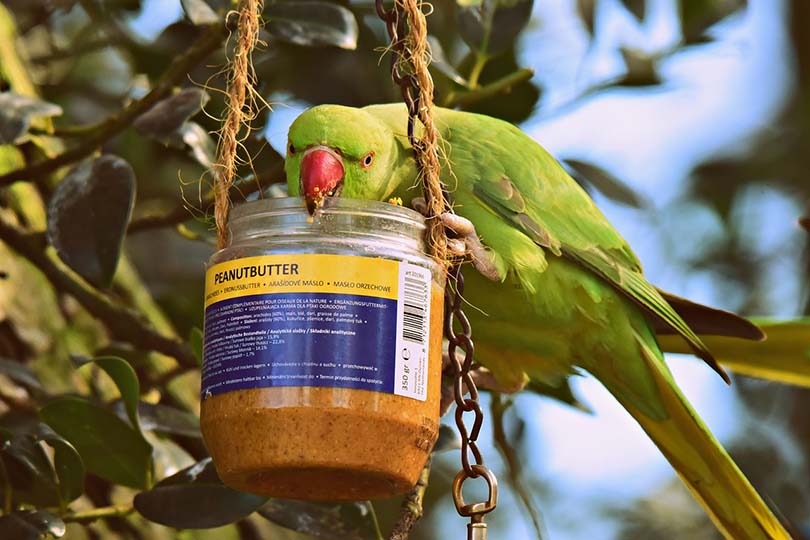
What Is Aflatoxin and Why Is It Toxic?
Peanuts are usually contaminated with aflatoxin, a compound that is produced by several species of naturally occurring fungi (chiefly Aspergillus) that can not only make your bird ill by causing live issues but is also a known carcinogen. Aflatoxin is often found on the shell and can be found on the peanut as well. Human-grade peanut butter is less likely to have aflatoxin because of the roasting process, but it is still possible for some to sneak in there that might make your bird ill. This toxin is one of the main reasons that peanut butter is recommended only as an occasional treat for parrots.
Can I Feed My Parrot Peanuts or Other Nuts?
Nuts are a good source of protein, fat, and calories for your parrot that help to provide them with energy for all their daily activities. Many parrot owners feed their parrots a variety of nuts for this reason, such as walnuts, peanuts, almonds, pistachios, hazelnuts, pecans, and Brazil nuts. Nuts are high in fat though, so you need to keep them to a minimum; in many cases, only 1 or 2 a day.
Peanuts are a concern because of aflatoxin. If you are going to feed your parrot peanuts, break them out of the shell, dry roast them, and do not salt them. Any peanuts with spots on them should be considered dangerous and not used.
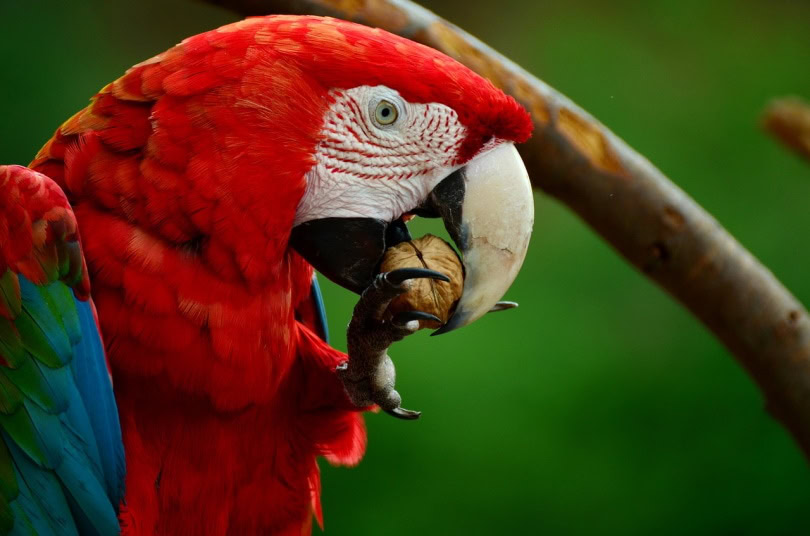
What Other Food Can Parrots Eat?
You can feed a variety of other foods to your parrot to help it have a well-rounded diet. Many fruits, vegetables, seeds, nuts (as discussed above), and beans are safe to feed your parrot and will help give it all the nutrients it needs to be healthy.
Here is a list of foods that are safe for your parrot to eat:
- Bananas
- Papaya
- Apples
- Pomegranates
- Cherries (remove the seeds)
- Radishes
- Broccoli
- Blackberries
- Cauliflower
- Beans (cooked only)
- Blueberries
- Strawberries
- Blackberries
Your parrot can also eat insects, as well as a pellet food designated for parrots.
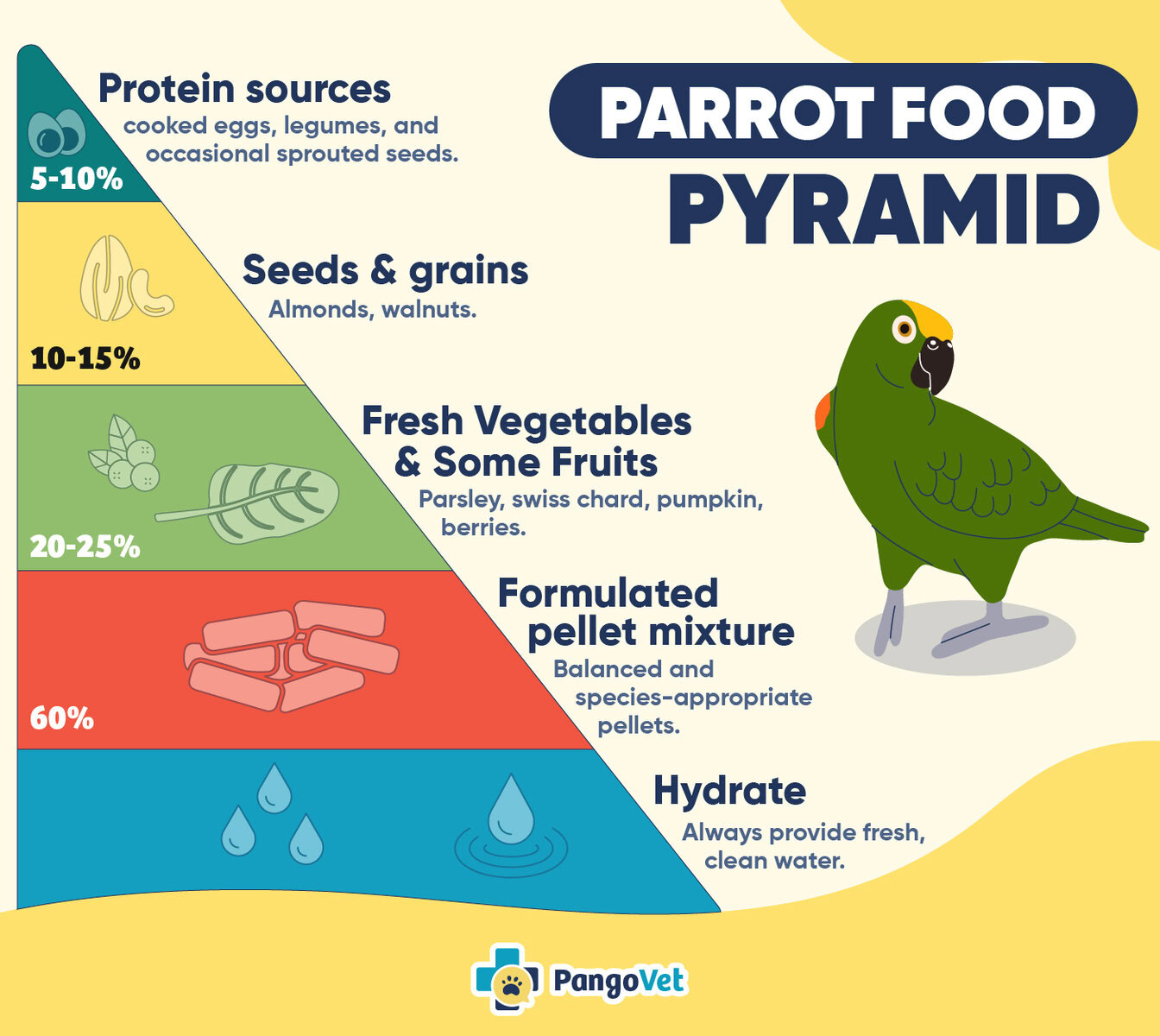
What Foods Should Parrots Avoid?
A parrot’s diet can consist of a variety of fruits, vegetables, nuts, and seeds. There are a few foods that you should avoid feeding your parrot. Avocados are poisonous to birds. Chocolate, salt, alcohol, candy, processed human foods, onion, garlic, shallots, raw potatoes, caffeine, and sugar are all foods that should be avoided in a healthy parrot diet.
The seeds of many popular fruits should be removed before feeding them to your parrot. It’s advised to remove the seeds from cherries, plums, apples, apricots, nectarines, and peach pits before giving the fruit to your bird. Also, it’s important to always check to see if your specific species of parrot has any dietary restrictions.

Conclusion
Parrots can eat peanut butter, but it’s strongly cautioned against. Peanut butter is full of additives, such as molasses, sugar, and oils, so a little bit goes a long way is the best policy when it comes to feeding it to your bird. It is important to watch out for aflatoxin, which is a fungus that can appear on peanut shells or in peanut butter itself. This toxin can cause liver damage and is a known carcinogen. If you are planning on giving peanuts to your parrot, it’s best to remove the shell and dry roast it before giving it to your pet. You can also feed your parrot a variety of fruits and vegetables, as well as other nuts, including walnuts, pistachios, almonds, hazelnuts, Brazil nuts, and pecans. If you’re still questioning whether to feed peanuts to your parrot, call your vet and have a conversation about your concerns.
You may want to read:
- Can Parakeets Eat Peanut Butter? What You Need to Know!
- Can Parrots Eat Pears? What You Need to Know!
Featured Image Credit: Towfiqu barbhuiya, Unsplash
